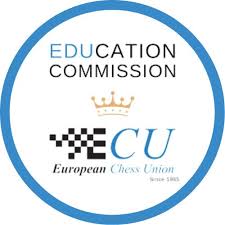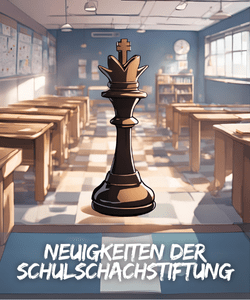Zuletzt am 11. März 2023 aktualisiert
HIER IST DER LINK VON FRANK BICKERS WERK!
WHY WE SHOULD HAVE CHESS AT SCHOOL
Dear Mr. John Foley,
I am pleased that my article is getting such a great response. – https://www.chess-science.com/en/why-we-should-have-chess-at-school/ and https://www.chess-science.com/schach-die-schatzkiste-der-bildungspolitiker-update-zum-beitrag-vom-05-02-2022/
An English version of the study on the economic benefits of chess does not exist from Damvad Analytics, which is a pity.
The response from a professor who advises the education ministers of the federal states made me realise that there are other problems besides scientific studies in establishing chess as a subject. I think more effort needs to be made to vividly convey the advantages of chess for the personal development of the pupil to decision-makers in politics, business and administration. Many people know chess, but very few have a deeper knowledge of it. Even experienced chess players are not always aware of the ways in which chess influences life courses and professional development.
That is why I have focused on the ability to recognise patterns, as well as personality traits such as the ability to concentrate, attention, motivation to learn and social behaviour.
Companies attach importance to professional experience when hiring new employees. What is work experience actually? It is nothing more than an existing wealth of experience, including successful problem solving, failures, successful approaches, successful and less successful ways of working. The employee with a great wealth of experience is seen as more valuable to the company than inexperienced applicants because of his or her wide range of stored patterns of how he or she has solved this or that problem in the past.
The discussion on chess as a subject is often discussed in an unfair way. Of course, there is no absolute causality that chess players generally produce better results in mathematics and science, because non-chess players can also become excellent mathematicians, physicists, chemists, engineers. No one asks what contribution these 3 subjects make to later professional life.
Why are there art education, sports and music subjects in school? All three subjects do not serve the purpose of the industry, because special skills in these 3 subjects are not yet sufficient prerequisites for a successful education or study in the STEM field. All three subjects should serve to impart humanistic values and all-round education. Without physical health, it is also difficult to deliver top mental performance, but here too, the exception proves the rule. Many natural scientists mastered a musical instrument. These parallels also exist in chess.
In these subjects, you also have to have talent by nature. Those who do not have I would not like to remove these subjects from the curriculum.
Chess, like in Russia, Brazil and elsewhere, should be understood as a learning didactic instrument. And if the chess game gives the students joy, they almost automatically achieve better performances with the nice side effects of improving in the school subjects. It is like in life, who loves his profession, he will achieve more than he who necessarily exercises it.
Similar to Russia, Brazil and elsewhere, chess should be understood as a learning didactic instrument, as a catalyst for better school success. And if the chess game gives the students joy, they almost automatically achieve better performances with the nice side effects of improving in the school subjects. It is like in life, who loves his profession, he will achieve more than he who necessarily exercises it.
Of course, I agree if I pass on my paper.
With regards
Frank Bicker
Head of the Working Group „Cjhess and Science“ at the German School Chess Foundation




